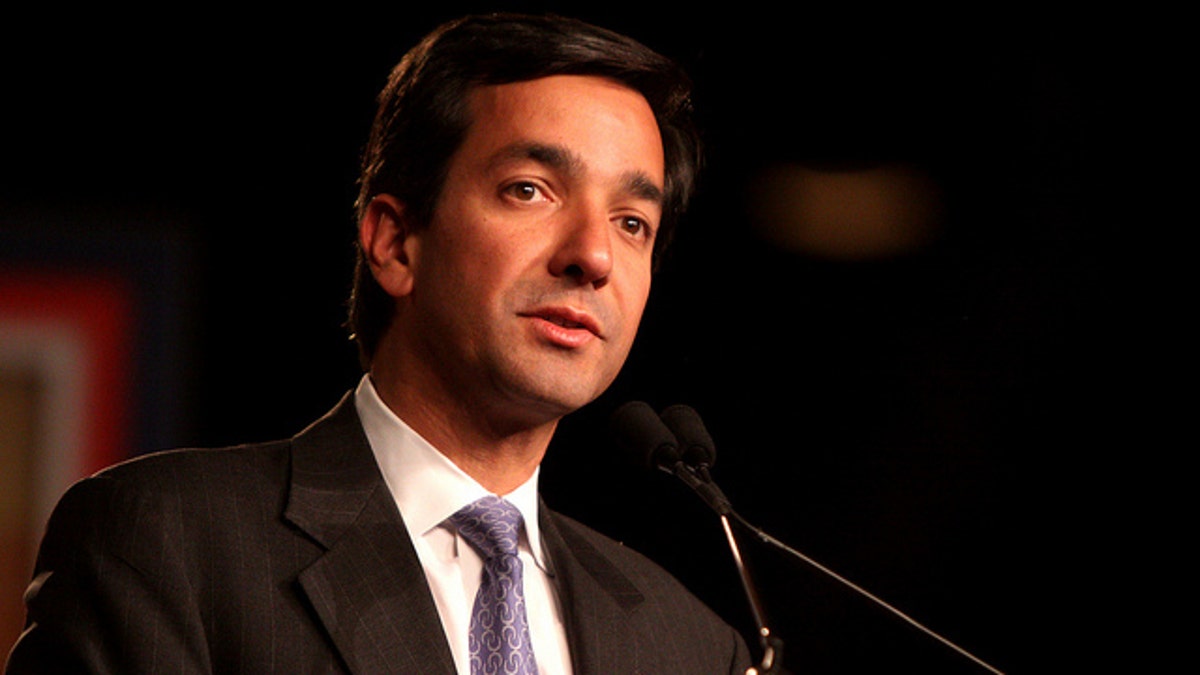
(Gage Skidmore)
Puerto Rican governor Luis Fortuño approved Wednesday a two-part referendum to help determine the island's political status, as supporters of remaining a U.S. commonwealth criticized the decision to hold both votes on the same day as an unfair move.
The first part of the referendum will ask voters if they want a change in status or prefer to remain a U.S. commonwealth. The second part will ask that voters choose from three options: statehood, independence or sovereign free association.
The original proposal was to hold the first part of the referendum in August 2012 and then, only if the majority sought a change in status, hold the second part during the November 2012 general elections.
But under the new proposal, the both parts will be held on Nov. 6, said Fortuño, who leads the pro-statehood New Progressive Party.
Regardless of what voters decide, any change requires approval by the U.S. Congress and the president.
Sen. Eduardo Bhatia said holding both parts of the referendum on the same day makes no sense because it assumes that the pro-status quo option doesn't win and the second round will be necessary.
"This law is proof that the leadership of the pro-statehood movement turns to trickery, deceit and the technique of confusion as political weapons," said Bhatia of the Popular Democratic Party, which supports the current commonwealth status. "What opportunity do voters have to seriously reflect between one vote and the other? None."
The questions will be on the same ballot, and critics fear that being forced to choose from the three options could influence how people vote in the first part.
Kenneth McClintock, secretary of state for Puerto Rico, denied accusations that pro-status quo supporters would be ignored, saying that people were free to leave the second part of the ballot blank. He said Bhatia's party had previously agreed to holding the referendum in one day.
McClintock said the U.S. Congress would interpret the results if the majority chose something other than maintaining the status quo.
Fortuño also discarded criticism of the referendum.
"All processes aimed at resolving Puerto Rico's political future assumes that the current situation no longer has majority support," he said.
Fortuño spokeswoman Ana del Valle said his administration chose to hold the two-part referendum on the same day to get a sense of what people prefer for the island's political future.
The referendum received praise from Luis Delgado, leader of a group that is pushing for Puerto Rico to have a sovereign free association with the U.S. But Delgado urged Fortuño to demand that the U.S. outline terms and conditions for each of the choices before the referendum is held.
Puerto Rico has long debated its political status, with no majority for any particular status emerging in referendums held in 1967, 1993 and 1998.
Rafael Cox Alomar, a PDP member who is seeking the island's nonvoting Congressional seat, dismissed the referendum as expensive and unnecessary.
"This referendum does not work and does not involve nor compromise in any way the U.S. Congress," he said. "In a moment of economic crisis... the cost of this referendum is an insult to the people who reject it."
Alejandro García Padilla, who is running against Fortuño, said the Popular Democratic Party would soon issue its official stance on the referendum.
Critics also noted that if Fortuño's party loses the election, millions of dollars spent on the referendum will have gone to waste.
Based on reporting by the Associated Press.
Follow us on twitter.com/foxnewslatino
Like us at facebook.com/foxnewslatino












































